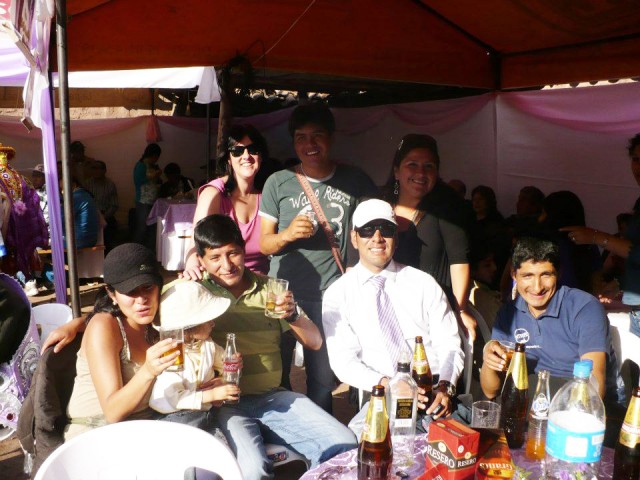
The Sin of Expectations When Traveling in Latin America
By: Maureen Santucci
Skip to Section
I see it over and over again… a tourist arrives in Cusco and gazes in delight at the woman dressed in brightly colored native dress leading a llama. “Wow! Peru is magical! The people are so friendly! I never want to leave!”
And then the unthinkable happens. A backpack is stolen. They are charged 2—3 times (or more) than the local price for something. And then, just as the people were first sanctified, they are now demonized. “Peruvians are liars… they are cheats… they’re greedy… they just want to steal from me.”
When you put anyone on a pedestal, they have nowhere to go but down. No one you meet is an angel. They aren’t a demon either. They are human. And just like everywhere else, some people are good, some are bad, and most are just trying to do the best they can. Which means, like the rest of us, they have some good days and some bad ones.
A lot is being made these days about experiential travel—the idea that you don’t just go someplace with a bucket list with items that you are trying to check off. That you really experience what the place is like. Not just the historical sites but the people themselves. The culture as it lives and breathes today.
What this means (and I would argue it’s a good approach for one’s entire life) is that you go without expectations. That you experience with an open mind and open eyes, trying not to make judgments. Trying to not interpret what you see and hear right away. Giving the culture a time to soak into your skin so you can really get a feel for it.

And to think I almost didn’t go! (Photo courtesy of the author)
Just let the cultural nuances wash over you without trying to understand them right away. Otherwise, you will only be able to understand them with your own cultural biases. Give yourself time to experience enough situations so that you can get a more realistic framework.
Of course, this doesn’t just go for Peru. It goes for any country in the world, be it in South America, Asia, or even Europe. Every culture has its own idiosyncrasies and deserves to be appreciated on its own merits.
There’s that old saying about what happens when you assume. Doing so when you are in another country is a good way to create boundaries and separation from the people that live there. If someone said or did something in your own country, you might well be able to “assume” what was behind those words or driving that action. Not so in another locale.
For example, Peruvians (in general and especially outside of Lima) have a tendency to be late or, in some cases, not show up at an agreed upon time at all and without notice. To North Americans or Europeans this feels rude and disrespectful. While it surely makes you feel that way, you cannot make the assumption that it was intentional. Learning that people here do the same thing to all of their friends and family has convinced me that this is not the case, however annoying it may be.
It may not be easy to leave your expectations behind. But I can almost guarantee that if you do, you will have more amazing travel experiences than you could have dreamed possible.
About the Author
Originally from the US, Maureen Santucci now calls the ancient Peruvian capital of Cusco home, where she has lived for 7 years, working as a travel consultant as well as writing for Fodors Travel Guide. She wrote this article for Tucan Travel, experts in adventure tours all over Latin America and beyond.
Featured image via Unsplash.
Information published on this website and across our networks can change over time. Stories and recommendations reflect the subjective opinions of our writers. You should consult multiple sources to ensure you have the most current, safe, and correct details for your own research and plans.
Frayed Passport is a participant in the Amazon Associates Program, an affiliate advertising program designed to provide a means for sites to earn advertising fees by advertising and linking to Amazon.com. We also may share links to other affiliates and sponsors in articles across our website.




